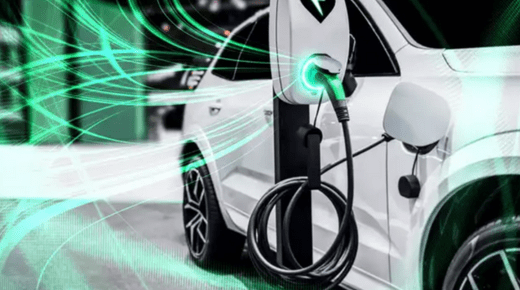The Economic Benefits of Owning an Electric Vehicle – Cost Savings and Incentives

As the automotive industry undergoes a significant transformation, electric vehicles (EVs) have emerged as a pivotal element in shaping the future of transportation. Beyond their environmental benefits, EVs offer considerable economic advantages to owners. This article delves into the cost savings associated with owning an electric vehicle and explores available incentives that enhance their financial appeal.
Electric Vehicles: A Cost-Efficient Choice
1. Lower Fuel Costs
One of the most immediate economic benefits of owning an electric vehicle is the reduction in fuel expenses. Unlike conventional gasoline-powered vehicles, EVs run on electricity, which is generally less expensive than gasoline. According to the U.S. Department of Energy, the cost to operate an electric vehicle is significantly lower than that of a gasoline car. For example, the cost per mile for electricity is often a fraction of the cost per mile for gasoline. This difference in fuel cost can lead to substantial savings over the lifespan of the vehicle.
2. Reduced Maintenance Expenses
Electric vehicles also present a financial advantage through lower maintenance requirements. EVs have fewer moving parts compared to internal combustion engine (ICE) vehicles. They do not require oil changes, and they experience less wear and tear on components such as the transmission and brakes. This reduced maintenance translates to lower service costs. Additionally, many EV manufacturers offer comprehensive warranties on their battery systems, further mitigating potential repair expenses.
3. Increased Resale Value
As the market for electric vehicles continues to expand, their resale value is becoming increasingly favorable. Consumers are becoming more aware of the long-term savings associated with EVs, which enhances their appeal in the used car market. Vehicles like the Honda CR-V, traditionally known for their reliability and durability, are now seeing increased competition from electric counterparts. For example, prospective buyers looking at a Honda CR-V for sale may weigh the potential savings of an EV against the cost of maintaining a gasoline-powered vehicle, influencing their purchasing decision.
Incentives for Electric Vehicle Ownership
1. Federal and State Tax Credits
Incentives play a crucial role in making electric vehicles more economically attractive. One of the primary incentives is the federal tax credit, which can significantly reduce the initial cost of purchasing an EV. As of 2024, buyers can receive up to $7,500 in federal tax credits for qualifying electric vehicles. These credits are designed to offset the higher upfront cost of EVs and encourage more consumers to consider electric options.
In addition to federal tax credits, many states offer their own incentives, including rebates, tax credits, and grants. For instance, California and New York provide substantial incentives for EV buyers, further enhancing the economic benefits of owning an electric vehicle.
2. Reduced Registration Fees and Toll Discounts
Several states offer reduced registration fees for electric vehicles. This reduction can provide additional savings to EV owners, making the overall cost of ownership even more attractive. Moreover, some regions offer toll discounts or exemptions for electric vehicles, which can lead to further cost reductions, particularly for those who frequently travel on toll roads.
3. Incentives for Charging Infrastructure
To support the growing number of electric vehicles, various incentives are available for installing home charging stations. Federal and state programs may provide rebates or tax credits for the installation of EV chargers, reducing the cost of setting up the necessary infrastructure to support an electric vehicle. These incentives not only help offset the cost of home charging equipment but also encourage the broader adoption of EVs.
Considering a Honda CR-V for Sale
For those in the market for a new vehicle, the decision between a traditional gasoline-powered car and an electric vehicle is becoming increasingly relevant. While the Honda CR-V remains a popular choice for its reliability and practicality, potential buyers should consider the long-term cost benefits of electric vehicles. As more electric models enter the market, including affordable and high-performing options, the comparison between a Honda CR-V For Sale and an electric vehicle becomes more nuanced.
1. The EV Market Landscape
The growing availability of electric vehicles offers consumers a wide range of options to suit various needs and preferences. From compact city cars to SUVs, the electric vehicle market is rapidly evolving to provide alternatives to traditional models like the Honda CR-V. Evaluating the total cost of ownership, including fuel savings, maintenance costs, and available incentives, can help buyers make an informed decision that aligns with their financial goals and environmental values.
2. Long-Term Economic Impact
Ultimately, the economic benefits of owning an electric vehicle extend beyond immediate cost savings. As technology advances and the market for EVs expands, the total cost of ownership is expected to decrease further. The growing infrastructure for EV charging and continued advancements in battery technology will likely enhance the financial appeal of electric vehicles in the years to come.
Conclusion
Owning an electric vehicle offers substantial economic advantages, including lower fuel and maintenance costs, as well as various incentives designed to reduce the upfront expense. While traditional vehicles like the Honda CR-V remain strong contenders in the market, the growing benefits of EVs make them an increasingly attractive option for cost-conscious consumers. As the automotive industry continues to evolve, electric vehicles will likely play a central role in shaping the future of transportation, offering both economic and environmental benefits to their owners.



